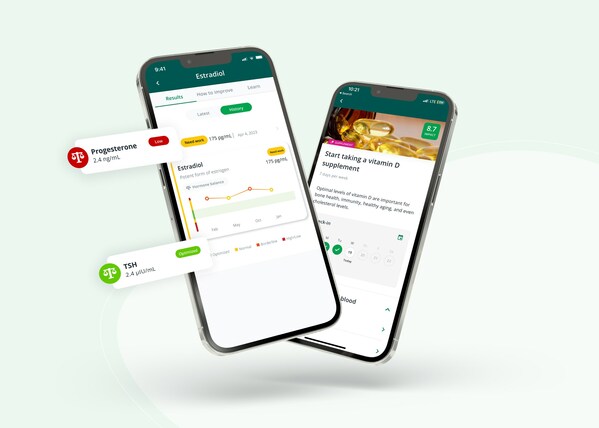
InsideTracker, a personalized health and wellness company, has announced a major update with the release of 10 new healthspan-focused DNA insights. This update, which includes pivotal information on menopausal age and bone density, offers a comprehensive health profile for individuals, providing actionable insights on a range of genetic indicators.
InsideTracker’s new insights present an extensive look into an individual’s genetic tendencies related to ten different health aspects. Besides menopausal age and bone density, which are especially relevant in the context for women’s health, the insights also include ApoB, an essential indicator of heart health; grip strength, which can be an early warning sign of various chronic conditions; cognitive aging, related to the risk of accelerated cognitive decline; and epigenetic age acceleration, regarding the risk of your body aging faster than your chronological age.
Additional insights focus on lifespan, showing your genetic potential to live a longer life; age-related muscle weakness, revealing your genetic tendency for loss of muscle strength in old age; visceral fat, showing your genetic risk for harmful body fat that negatively affects healthspan; and morningness (chronotype), associated with better behavioral patterns and improved metabolism, both of which can benefit healthspan.
Beyond providing genetic insights, InsideTracker’s platform gives users a well-rounded view of their health by including various other healthspan categories like heart health, hormone balance, sleep, inflammation, and more. Users can track their progress, discover potential issues, and work towards optimizing each category for a balanced and robust health outcome.
“Our mission at InsideTracker is to help people decode their bodies’ health data and turn that information into actionable guidance for efficient healthspan improvement,” said Bartek Nogal, PhD, Principal Scientist and head of the genomics team at InsideTracker. “These new genetic insights are complex and mostly modifiable predispositions that can serve as warning signs and a kind of individualized compass. For example, suppose someone who already works out a lot finds out that they may have a tendency for slightly accelerated cognitive aging, but their predisposition to age-related muscle weakness is low. In that case, they might consider emphasizing sleep and social engagement instead of additional workouts. Others may be interested to learn that they may be at increased risk for visceral fat, which may facilitate a decision to step up their aerobic exercise, if not get a scan for peace of mind. Armed with these personalized genomic insights and blood biomarker data, our users can take proactive steps to optimize their quality of life.”



